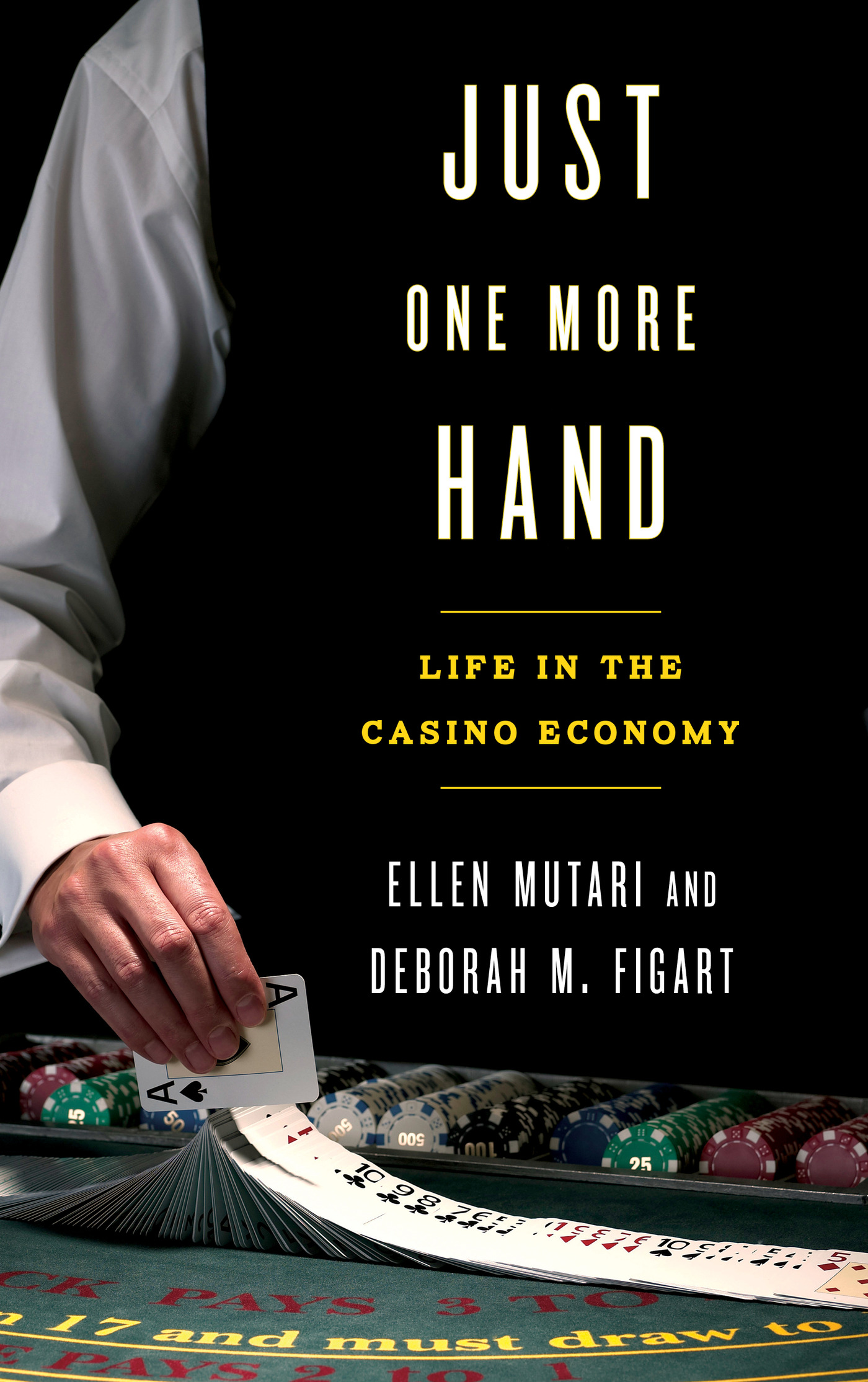Just One More Hand
Just One More Hand
Life in the Casino Economy
Ellen Mutari and Deborah M. Figart
ROWMAN & LITTLEFIELD
Lanham Boulder New York London
Published by Rowman & Littlefield
A wholly owned subsidiary of The Rowman & Littlefield Publishing Group, Inc.
4501 Forbes Boulevard, Suite 200, Lanham, Maryland 20706
www.rowman.com
16 Carlisle Street, London W1D 3BT, United Kingdom
Copyright 2015 by Rowman & Littlefield
All rights reserved. No part of this book may be reproduced in any form or by any electronic or mechanical means, including information storage and retrieval systems, without written permission from the publisher, except by a reviewer who may quote passages in a review.
British Library Cataloguing in Publication Information Available
Library of Congress Cataloging-in-Publication Data
Mutari, Ellen, 1956
Just one more hand : life in the casino economy / Ellen Mutari and Deborah M. Figart.
pages cm
Includes bibliographical references and index.
ISBN 978-1-4422-3667-7 (cloth : alk. paper) -- ISBN 978-1-4422-3668-4 (electronic)
1. Casinos--United States. 2. Casinos--United States--Employees. 3. Gambling industry--United States--Employees. I. Figart, Deborah M. II. Title.
HV6711.M88 2015
795.092'273--dc23
2014030156
 TM The paper used in this publication meets the minimum requirements of American National Standard for Information Sciences Permanence of Paper for Printed Library Materials, ANSI/NISO Z39.48-1992.
TM The paper used in this publication meets the minimum requirements of American National Standard for Information Sciences Permanence of Paper for Printed Library Materials, ANSI/NISO Z39.48-1992.
Printed in the United States of America
The Workers
Ally | dealer |
Aparna | guest room attendant |
Bernice | inspector |
Caroline | dealer |
Connie | surveillance officer |
Dario | inventory clerk |
Donna | dealer |
Emil | craps dealer |
Felicia | slot attendant |
Graciela | floorperson |
Heather | food server |
Holly | dealer |
Inez | steward |
Isiah | dealer |
Jesse | dealer |
Keith | waiter |
Ken | dual rate pit boss |
Laurel | dealer |
Lena | poker dealer |
Lily | costumed beverage server |
Manuela | guest room attendant |
Marlene | dealer |
Nana | seamstress |
Nick | bar porter |
Nora | loyalty card representative |
Patrice | dual rate floorperson |
Peter | waiter |
Robin | manager |
Ruth | beverage server |
Sean | surveillance operator |
SueBee | pit boss |
Terrence | slot technician |
Valerie | slot attendant |
Walter | food server |
Zoe | beverage server |
Preface
On a cold winter Wednesday in February 2014, 1,300 people showed up for an emergency job fair at the Golden Nugget casino in Atlantic City. They had heard that fifty job openings were going to be filled immediately. With local casino employment levels at their lowest point in thirty years, the shutdown just one month earlier of another casino that put 1,600 employees out of work, and New Jerseys unemployment rate stubbornly above 7 percent, hopeful applicants lined up in droves for a chance to win one of the positions. The queue snaked around one floor and down the stairs to another floor. The odds of actually landing a job made slot machines look like relatively good investments. Yet, the job fair still seemed like a rare silver lining amid cloudy skies: Executive Vice President and General Manager Tom Pohlman had told the media that the Golden Nugget was seeing a spike in customers following the closing of local competitor Atlantic Club casino. It was looking to hire additional dealers, as well as front desk attendants, cocktail servers, valet attendants, and more.
Then came the heartbreaking announcement from the Golden Nuggets corporate office in Las Vegas: While our gaming revenue has been reported as slightly up in Atlantic City, the comparative increase in business is off [of] a low base and not the reason for the job fair. Instead, applicants were asked if they would relocate to a newer Golden Nugget casino in Lake Charles, Louisiana, that wasnt scheduled to open until the end of the year. They were also told that the Atlantic City property still might hirebut not until warmer weather increased seasonal summer business.
Hard-working people desperate for jobs and being told they had to transplant themselves away from family and community to get them. A recession compounding the long-term loss of business to newer competitors. Where had we seen this story before?
In 1995, we moved to southern New Jersey from southeast Michigan. Teaching economics in Michigan in the early 1990s had allowed us a front-row seat to watch how the economic restructuring of the U.S. economy away from a manufacturing base was transforming peoples lives and livelihoods. Southeast Michigan is dominatedeconomically, culturally, and politicallyby the dynamics of the U.S. automobile industry. In 1990, Deb had landed a tenure-track job in economics (and was subsequently tenured) at Eastern Michigan University in Ypsilanti, Michigan. Ypsilanti was the site of Ford Motor Companys Willow Run bomber factory built during World War II; the plant was shifted to auto production under several owners after the war, eventually becoming a General Motors (GM) facility. While working on her dissertation, Ellen spent several semesters as an economics instructor at Mott Community College in Flint, Michigan, the city made famous in the 1989 Michael Moore documentary Roger and Me. Many of the students taking community college classes in Flint were laid off GM workers whose tuition was subsidized under a union-negotiated agreement. Although our own research during this period focused on issues facing working women, particularly pay equity, flexible working time, and the feminization of work, we often taught and learned from students who were raised in the shadow of the local industry. Any time we needed to illustrate a concept in class, we relied upon examples from the auto industry, knowing that every one of our students would get it.
Using the auto industry to teach economics was germane because it was such a crucial industry in shaping the concepts and language that we use to talk about economic life. Fordism, for example, is a term that describes the political economy of the mid-twentieth-century United States. The term honors Henry Ford, the automobile industry executive who pioneered the Five Dollar Day. In simplified termsfar more simplified than the actual historical record of whether, how, and why Ford paid relatively high wages to his workersauto workers who made good wages could afford to buy cars. The Fordist era of U.S. economic history was a period marked by mass production (assembly line manufacturing) and mass consumption (the rising living standards of middle-class Americans). Keynesian economic policy was the consensus approach, since the oligopolistic manufacturing industries of this era needed to maintain demand for their goods and services in the domestic market.
Next page
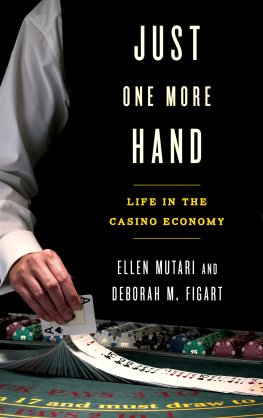
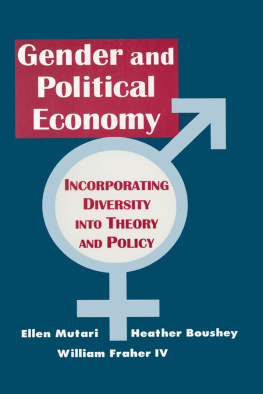

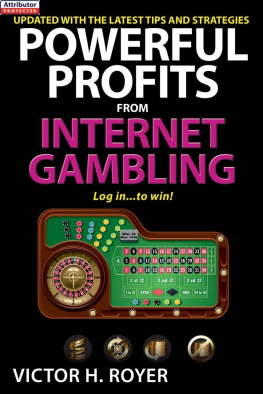

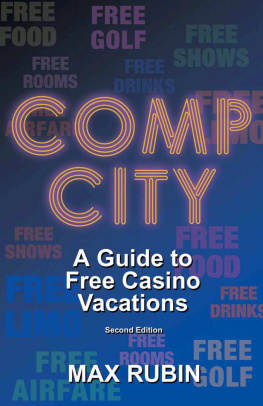

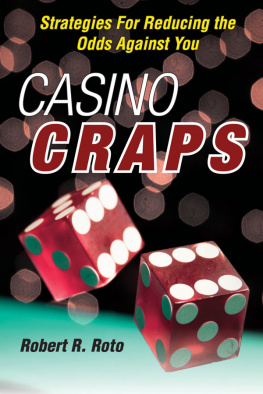
 TM The paper used in this publication meets the minimum requirements of American National Standard for Information Sciences Permanence of Paper for Printed Library Materials, ANSI/NISO Z39.48-1992.
TM The paper used in this publication meets the minimum requirements of American National Standard for Information Sciences Permanence of Paper for Printed Library Materials, ANSI/NISO Z39.48-1992.